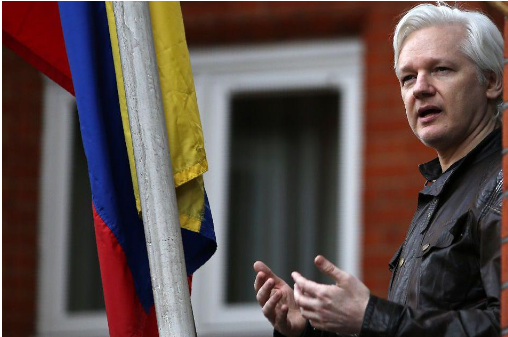Latest world news
Julian Assange: UK court rejects US extradition request of WikiLeaks founder, cites suicide risk
A British judge ruled on Monday that WikiLeaks’ founder Julian Assange should not be extradited to the United States to face charges of conspiring to obtain secret US documents by hacking government computers and violating the Espionage Act.

Latest world news
Bangladesh president Shahabuddin accuses Yunus of conspiracy to unseat him
Bangladesh President Mohammed Shahabuddin has accused former chief adviser Muhammad Yunus of attempting to unseat him unconstitutionally and destabilise the country during the interim period.
Latest world news
India studying implications after US Supreme Court strikes down Trump’s global tariffs
India said it is studying the implications of a US Supreme Court ruling that struck down Donald Trump’s sweeping tariffs, even as a new 10% global duty has been announced under an alternate law.
Latest world news
PM Modi meets Sri Lankan President Dissanayake at AI summit, reviews connectivity agenda
PM Modi and Sri Lankan President Anura Kumara Dissanayake reviewed connectivity, AI cooperation and regional stability during talks at the AI Impact Summit in New Delhi.
-

 LATEST SPORTS NEWS11 hours ago
LATEST SPORTS NEWS11 hours agoICC Men’s T20 World Cup 2026: South Africa outclass India with smart slower-ball strategy in Super 8
-

 India News10 hours ago
India News10 hours agoJNU protest turns violent as Left and Right student groups trade charges
-

 India News11 hours ago
India News11 hours agoDevendra Fadnavis seeks CBI probe into Ajit Pawar plane crash
-

 India News11 hours ago
India News11 hours agoWorld praised India’s AI potential at AI Impact Summit, says PM Modi
-

 Latest world news5 hours ago
Latest world news5 hours agoBangladesh president Shahabuddin accuses Yunus of conspiracy to unseat him
-

 India News3 hours ago
India News3 hours agoSecurity tightened across Delhi metro stations after bomb threat emails







